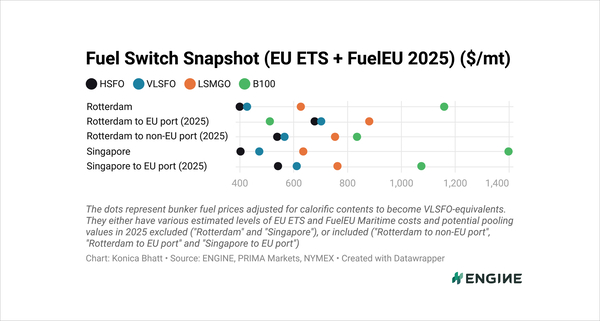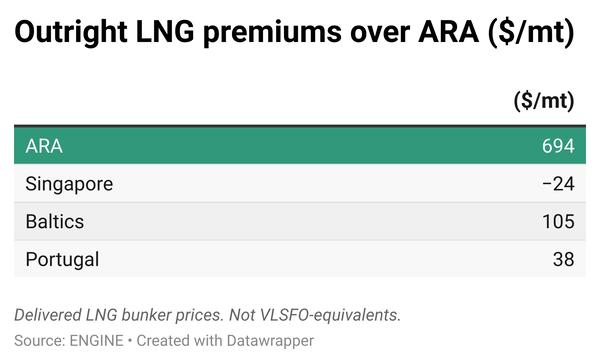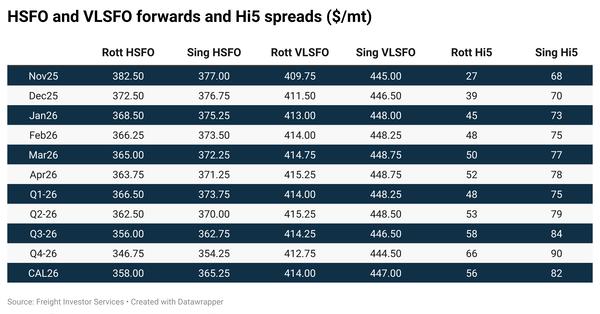US renews threat against IMO states backing net-zero framework
US considering measures against countries supporting adoption
EU reiterates backing for the framework
 IMAGE: US President Donald Trump with US Vice President Mike Pence and Speaker of the House Paul Ryan. Flickr/Trump White House Archives
IMAGE: US President Donald Trump with US Vice President Mike Pence and Speaker of the House Paul Ryan. Flickr/Trump White House Archives
The Trump administration has reiterated its threat against IMO member states that support adopting the organisation’s approved Net-Zero Framework (NZF) this week.
“The Administration unequivocally rejects this proposal before the IMO and will not tolerate any action that increases costs for our citizens, energy providers, shipping companies, their customers, or tourists,” the US Department of State said.
The NZF aims to reduce greenhouse gas emissions from international shipping through a global fuel-intensity standard and a pricing mechanism. If adopted, it can require ships to progressively reduce their well-to-wake GHG fuel intensity (GFI) from 2028 onwards.
In the approved draft, the targets are benchmarked against 2008 levels, set at 93.30 gCO2e/MJ and vessels will face penalties for failing to meet them.
Washington argues that the framework poses “significant risks to the global economy” and could increase global shipping costs “by as much as 10% or more.”
It warned it will take “strong measures” against countries voting in favour of the framework at the IMO Marine Environment Protection Committee’s extraordinary session in London this week.
The US outlined a series of retaliatory steps under consideration against nations supporting the framework, including:
- Investigations and new regulations targeting alleged anti-competitive practices by certain flag states and potentially blocking vessels registered in those countries from entering US ports.
- Visa restrictions on seafarers, including higher fees, mandatory re-interviews and possible quota changes for C-1/D category maritime crew visas. The C-1/D visa is a combined non-immigrant visa issued to crew members on commercial ships.
- Commercial penalties on US government contracts for new ships, LNG terminals and related infrastructure linked to nations backing the NZF.
- Additional port fees on ships owned, operated or flagged by those countries.
- Potential sanctions against officials promoting “activist-driven climate policies.”
“The United States will be moving to levy these remedies against nations that sponsor this European-led neocolonial export of global climate regulations. We will fight hard to protect our economic interests by imposing costs on countries if they support the NZF,” the state department said.
“Our fellow IMO members should be on notice,” it added.
The IMO member states are set to vote on the framework later this week. Under IMO procedures, once adopted the amendments would enter into force in 2027 via tacit acceptance, with the new standards applying from 2028. A two-thirds majority of MARPOL Annex VI Parties is required for adoption.
It should be noted that if implemented, ships calling at ports of ratifying states will face enforcement through port-state control under the IMO’s no more favourable treatment clause for non-Parties, even if the US or other nations do not agree to the amendments.
The EU has responded by reiterating its support for the framework.
“The EU views the Net-Zero Framework as a significant milestone and calls for its adoption at IMO next week. After adoption, the European Commission will review the relevant EU regulations in place,” the European Commission’s transport department said in a statement.
By Konica Bhatt
Please get in touch with comments or additional info to news@engine.online

Contact our Experts
With 50+ traders in 12 offices around the world, our team is available 24/7 to support you in your energy procurement needs.




